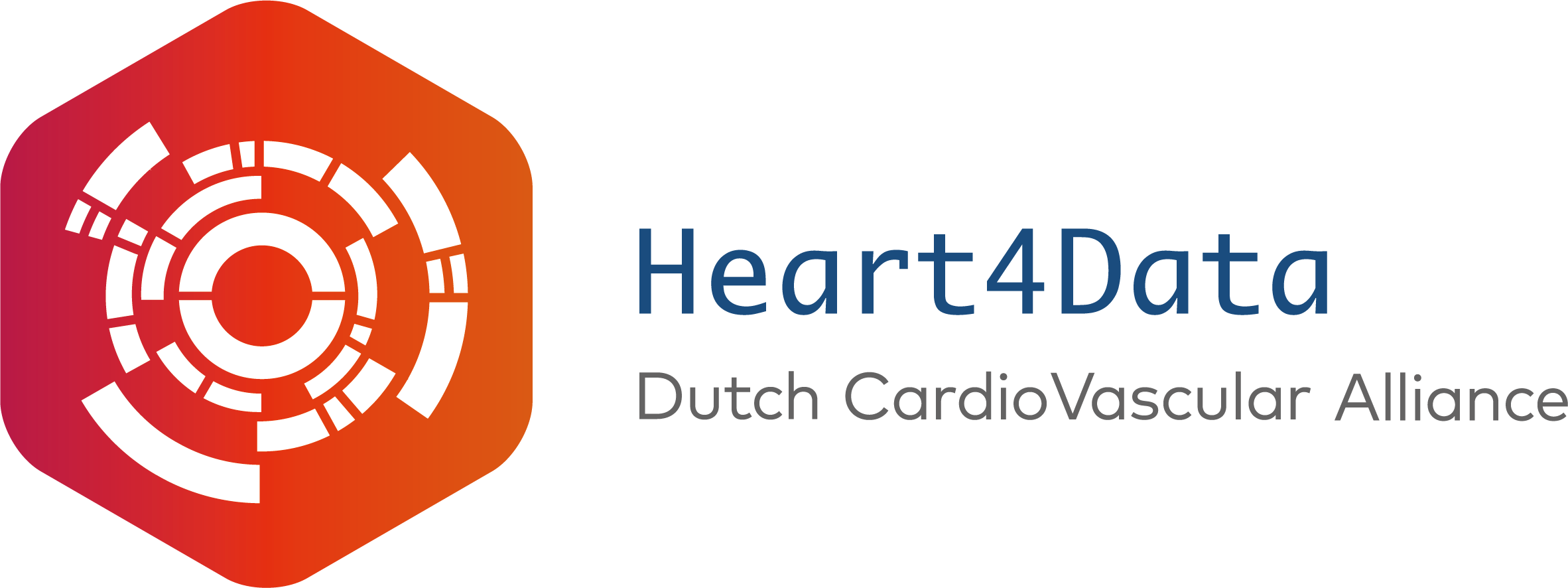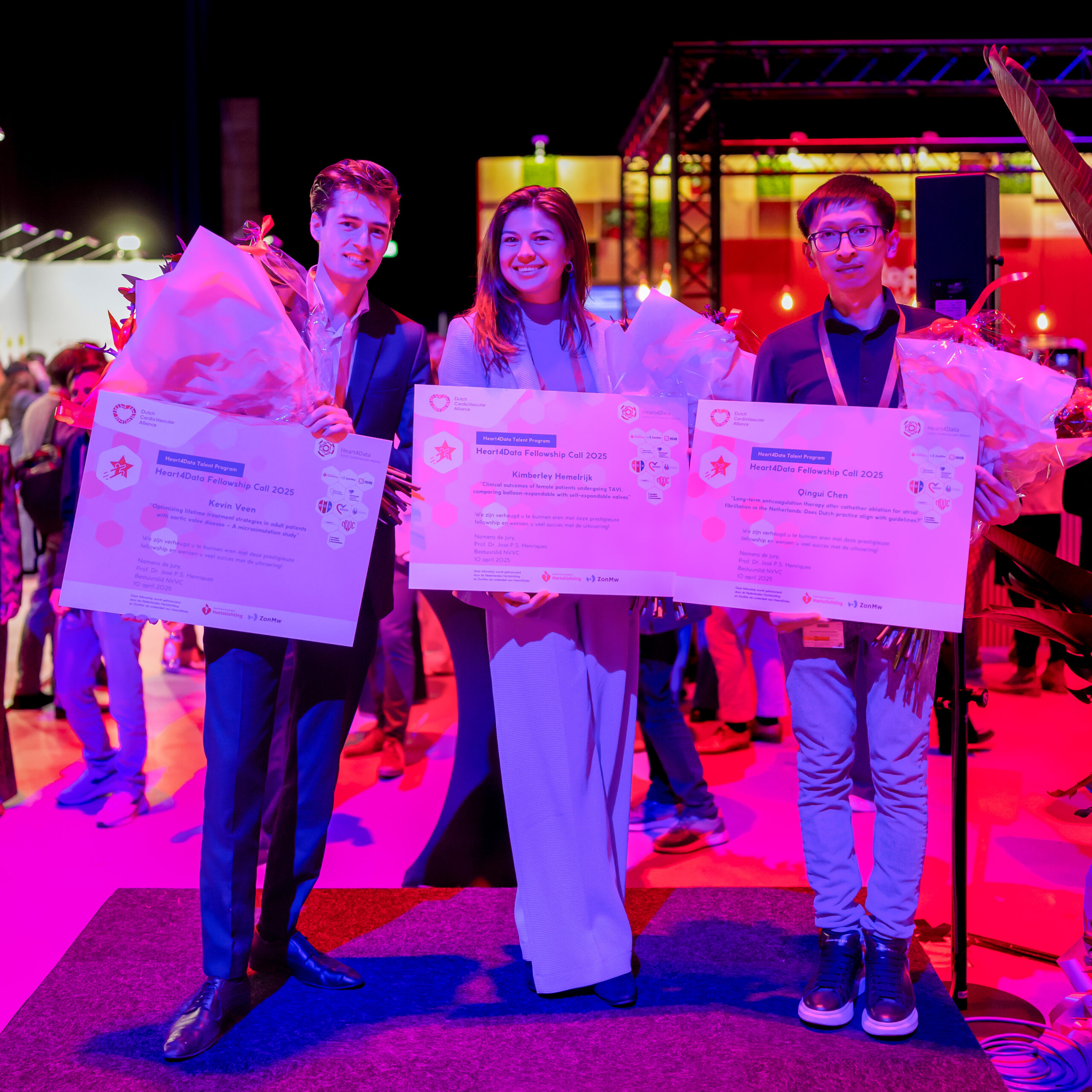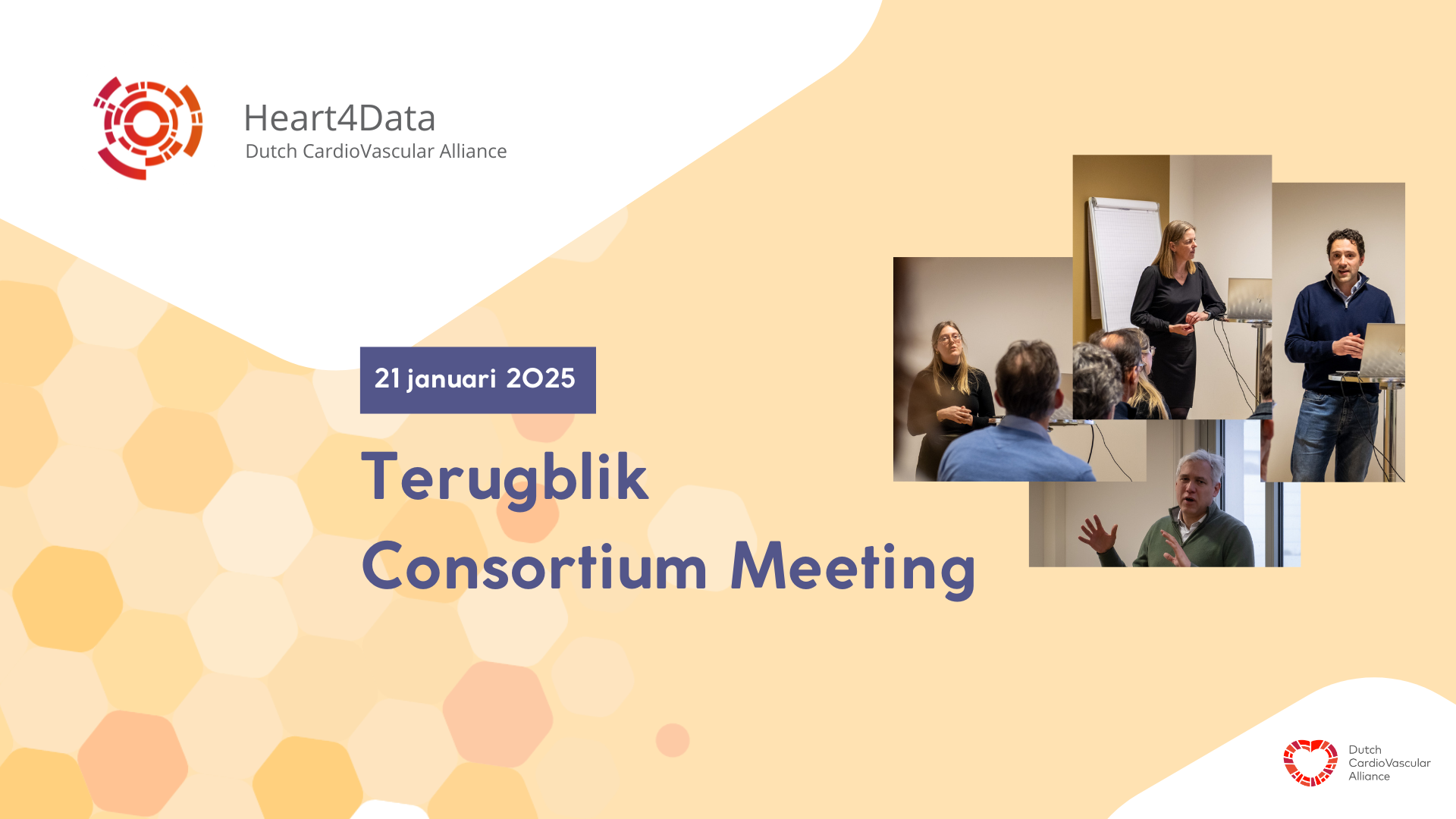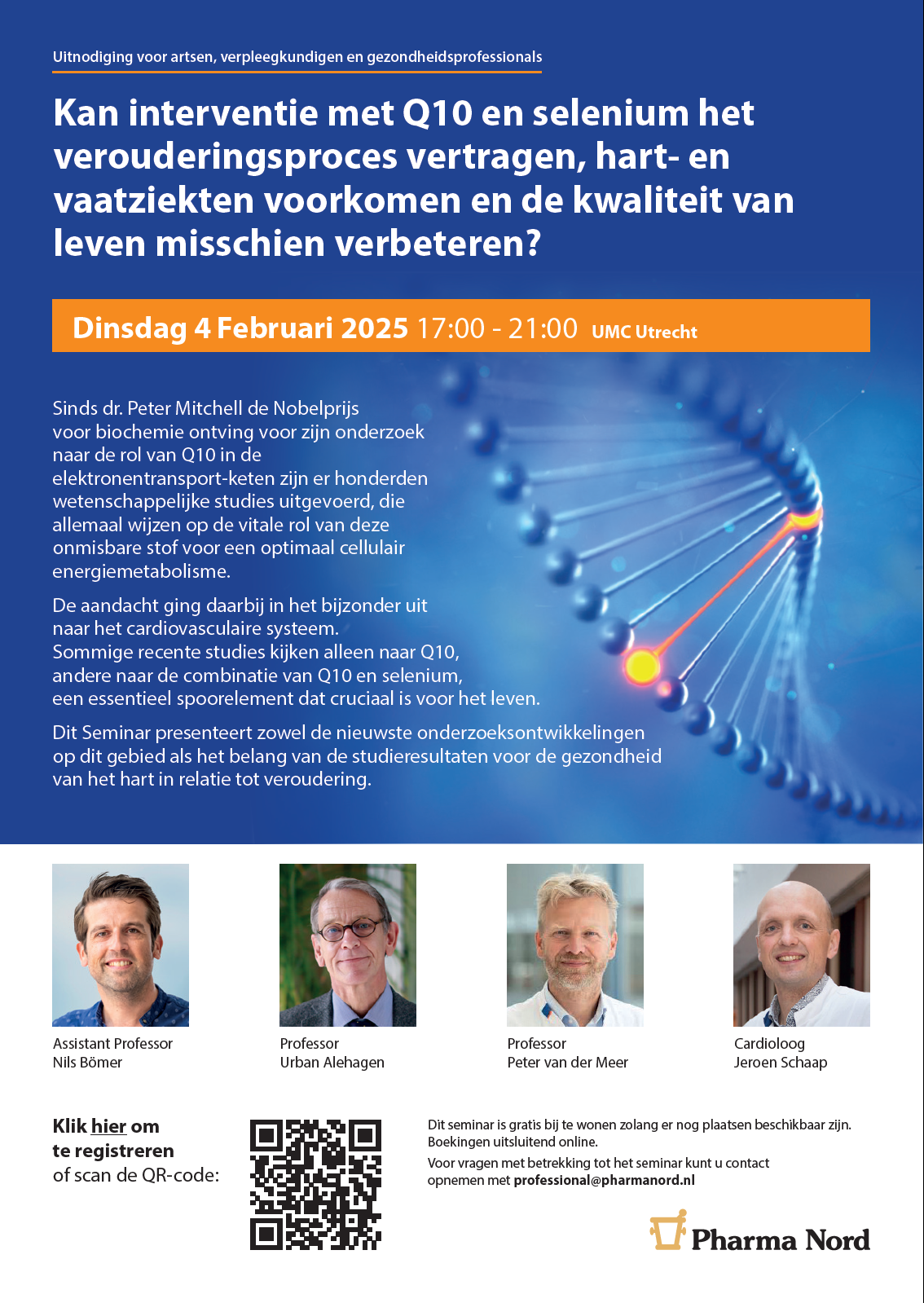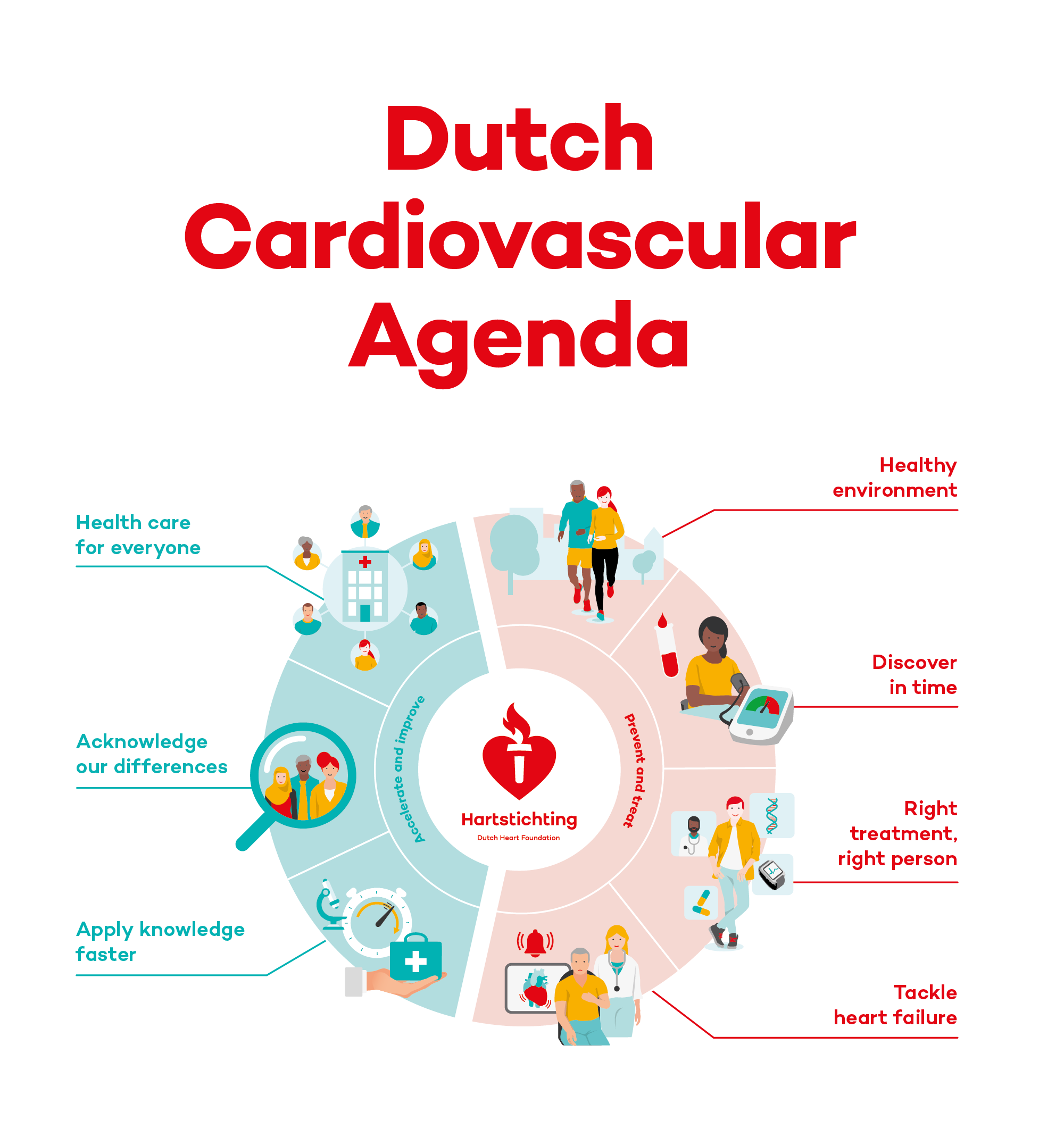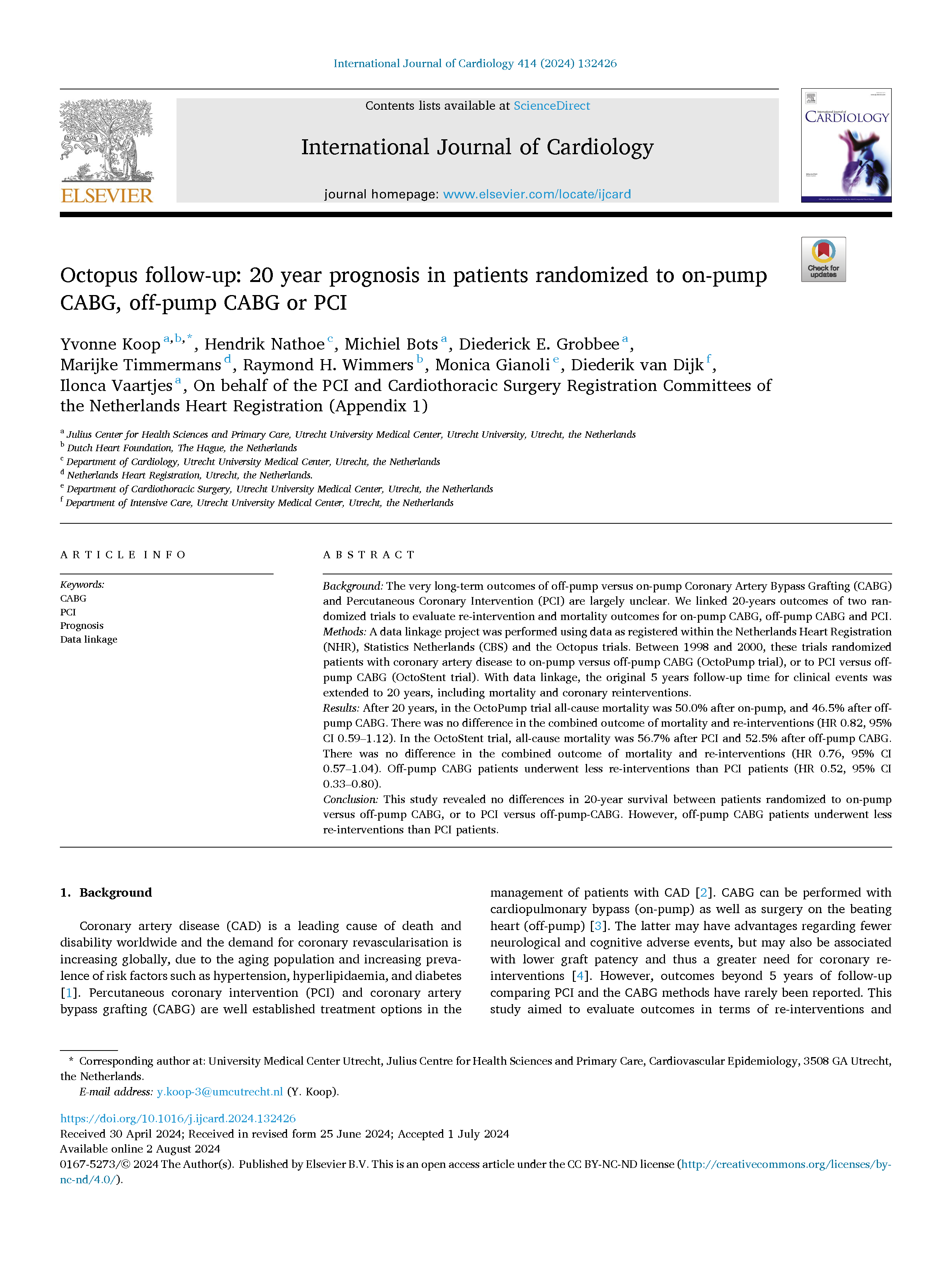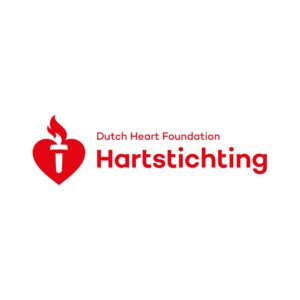September saw the first inclusion for REPEAT-AF, an innovative study on the use of pulsed field ablation in reinterventions for atrial fibrillation (AF). This marks a new milestone in cardiovascular clinical research: it is the first registration-based, randomised clinical trial (RB-RCT) in Dutch cardiology.
‘So far, we have included 20 patients and we find that, thanks to this link, data entry is not only smooth, but also much faster than in conventional RCTs,’ indicates Drs Nick van Vreeswijk, PhD student at UMCG. ‘As a result, we hope to free up more time for our patients and spend less at the computer.’
REPEAT-AF uses Heart4Data’s innovative infrastructure. Funded by the Heart Foundation and ZonMW, Heart4Data aims to create a sustainable infrastructure for cardiovascular registry-based research. This approach offers promising new opportunities for research: it is faster, cheaper and the registry contains a real-world population that research trials can use for benchmarking or selection.
REPEAT-AF: Use of Pulsed Field Ablation in Reintervention for Atrial Fibrillation
The treatment of atrial fibrillation (AF) focuses on lifestyle changes, stroke prevention, and symptom management. For patients with persistent symptoms, pulmonary vein isolation (PVI) is recommended as an effective intervention, as also mentioned in the new ESC guidelines for the treatment of AF. The number of PVIs has doubled in the past ten years (Annual figures on atrial fibrillation at Hart en Vaatcijfers). Although ablation is safe, about 30% of patients experience symptoms again within a year, for which some patients undergo a second ablation.
In addition to radiofrequency and cryoablation, there is now a third technique for ablation: pulsed field ablation. This method seems to cause less damage to surrounding structures. REPEAT-AF investigates whether pulsed field ablation is the most optimal option for this reintervention.
Nick van Vreeswijk: “What makes this study special is the use of implantable heart rhythm monitors (IHM). These small sensors are placed under the skin of the chest in a short procedure of just a few minutes about a month before the PVI. The IHMs monitor the heart rhythm 24 hours a day throughout the study period. This allows any recurring arrhythmias to be recorded very reliably and objectively.“
By using the NHR registry, there is also hardly any additional registration burden and a lot of historical data on ablations is available. This saves time and costs: moreover, the direct link with the registry makes it possible to follow patients over a longer period.
“Ensuring the safety and privacy of Dutch study participants is well regulated, but comes with an increasing administrative burden. Unfortunately, this sometimes takes time away from direct patient contact. This is not a unique Dutch problem, but a worldwide trend. By linking our RCT to the NHR, we avoid a lot of double work. The NHR quality registry is also regularly audited, ensuring reliable data acquisition and increasing the reliability of the study.” More about REPEAT-AF on CTV.
Heart4Data: The Right IT and Conditions for RB-RCTs

Heart4Data makes it possible to combine randomised clinical trials with the power of registry-based research. Heart4Data is a consortium of the Dutch Cardiovascular Alliance (DCVA) in which the NHR, together with other DCVA partners, works on an infrastructure for registry-based research.
In the DCVA, 24 research and healthcare organisations have joined forces to accelerate solutions for cardiovascular diseases. The joint goal of the DCVA partners is to reduce the disease burden for heart patients by 25% by 2030.
The project focuses on a fund and a Health Data Hub. The fund develops a research agenda and finances research, while the Health Data Hub provides the practical conditions such as IT infrastructure, digital links, legal advice, and data analysis expertise.
The infrastructure is based on the systems of the NHR Quality Registry. With the start of REPEAT-AF, an important step has been taken in further development: it is now possible to apply randomisation directly as soon as a patient is included in the study. Patients are divided into different treatment groups without additional administration. The link with the existing registry makes benchmarking possible based on existing data on delivered care and outcomes. This concerns a national database with several years of information on cardiovascular treatments.
A next step for Heart4Data is to draw up a research agenda by the involved DCVA partners and to make the knowledge and experience gained about this type of research available. Researchers will soon be able to visit a website with explanations about registry-based research in the cardiovascular field, examples of successful studies, information on the design of studies, including ethical and legal aspects, and useful formats such as informed consents.
